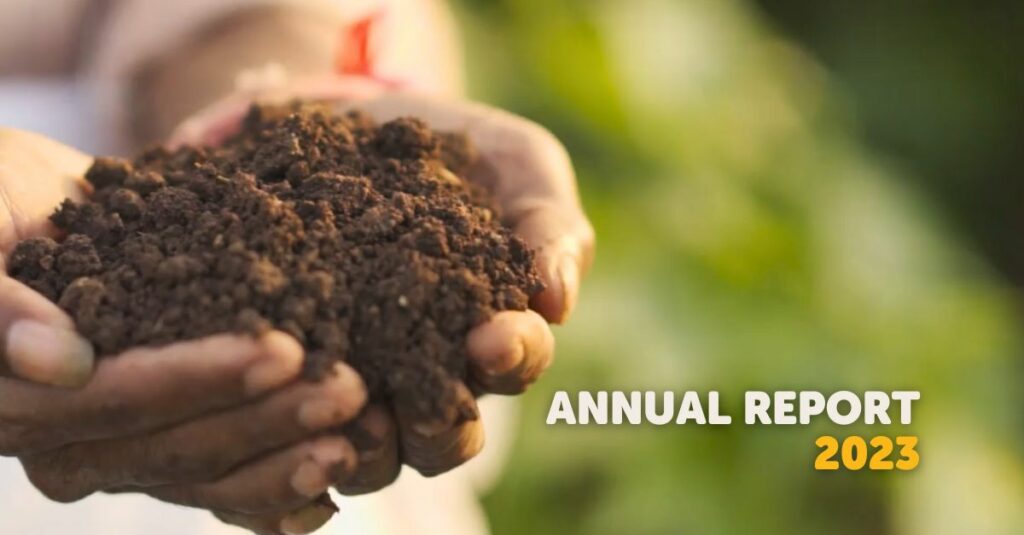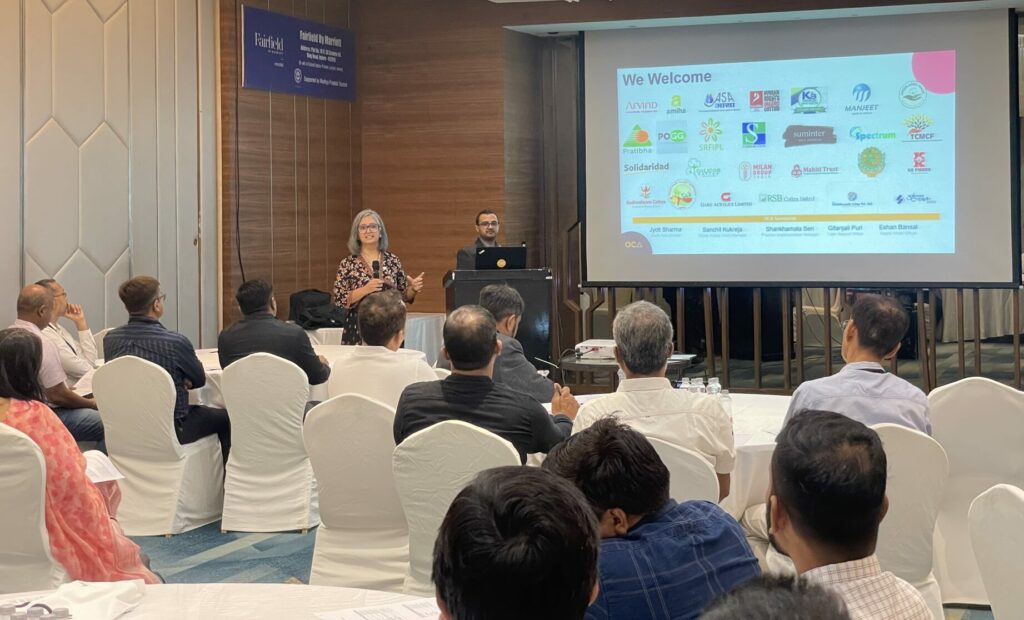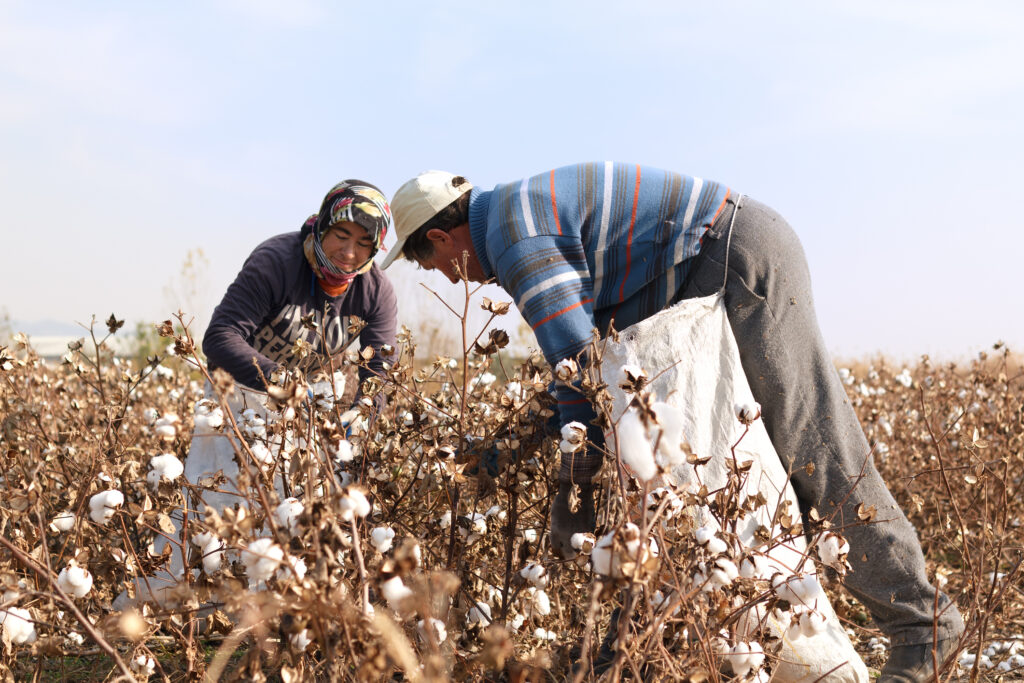Today the Partnership for Sustainable Textiles (PST) and its strategic partner Organic Cotton Accelerator (OCA) announced the launch of a multi-stakeholder partnership initiative to drive improvements across the organic cotton industry. Named the Partnership Initiative Organic Cotton in India, the pioneering project was formed with the aim of building a fair, environmentally friendly, and economically viable organic cotton supply chain.
The Partnership Initiative has signed up a total of 10 brands and organisations to participate. Brands Fashion, C&A, Esprit, Formesse, GOTS, HAKRO, H&M Group, s.Oliver Group, Tchibo, and Fairtrade have all committed to the long-term farmer-focused project, that now starts its on-site implementation and runs until 2025. The project is largely financed by the companies and also financially supported by the German Federal Ministry for Economic Cooperation and Development.
Benefits for Indian cotton farmers and the environment
The Partnership Initiative will work to deliver tangible benefits to at least 12,500 farmers converting to organic farming across India. Implemented through OCA’s established Farm Programme, the participating farmers will have access to reliable non-GM (genetically modified) seeds, receive capacity building support on organic practices, and be provided long-term procurement commitments as well as better earnings through premiums.
In turn, thousands of hectares of farmland will be regenerated through organic practices, eliminating the use of synthetic fertilisers and pesticides, building long-term soil health, and increasing on-farm biodiversity for generations to come. In addition to the training, which the farmers will receive on organic agronomic practices through OCA’s Farm Programme, another programme dedicated to promoting decent working conditions will be developed and rolled out to all farmers.
Cooperation for the conversion to organic cotton farming
OCA, working through local farm groups or implementing partners, will support the Partnership Initiative’s brand partners connecting to farm projects in various Indian regions. In return, the Initiative partners will provide a sourcing commitment for both in-conversion cotton and certified organic cotton including premiums to farmers (higher than the market price). This support is very welcome particularly by cotton farmers, who want to transition from conventional to organic. The in-conversion process, taking up to three years, can come with challenges such as temporary drops in yield that require extra financial support.
The potential of this Partnership Initiative includes not only an increase of the number of farmers practicing organic agriculture but also a more successful transition to organic cotton with the brand partners’ support and commitments in place for three years.
Commenting on the announcement, Bart Vollaard, Executive Director at OCA said:
“Progressive targets for organic cotton sourcing are great, yet they need to be combined with tangible support to farmers, in particular those that are transitioning from conventional to organic agriculture. It is great to work with members of the Partnership for Sustainable Textiles who understand that they need to go the extra mile to realize their organic cotton ambitions and provide farmers with long-term commitments and better prices. This initiative helps to mobilise more support to farmers during the challenging phase of transitioning to organic practices and deepen our impact by a special focus on decent working conditions. This truly helps accelerate organic cotton’s potential for positive impact.”
Jürgen Janssen, head of the secretariat of the Partnership for Sustainable Textiles added:
“The new Partnership Initiative has several positive effects; for the farmers, who earn more and receive greater security, for the textile companies and brands, who can purchase more organic cotton, and last but not least for the environment. It is also a good example of successful private-public financing: the companies bear more than three quarters of the costs, while the Federal Ministry for Economic Cooperation and Development finances the rest through two GIZ projects.”



